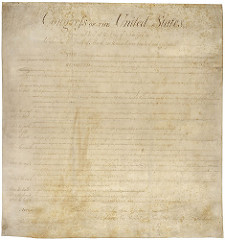We Americans love to tout our First Amendment rights, particularly the freedom to express our opinions. But do those freedoms apply around the water cooler?
Americans love to tout our First Amendment rights, particularly the freedom to express our opinions. But do those freedoms apply around the water cooler?
Sure, federal law prohibits employers from firing people over things like gender, race or religion. And union members may be shielded by contracts that say terminations must be performance-based. But once the scope broadens, many protections (and jobs) go out the window — as some high-profile people recently have discovered the hard way.
Why? A close reading of the First Amendment serves as a reminder that it is the government that can’t restrict free speech. “Congress shall make no law … abridging the freedom of speech …” So free speech may be a legal right, but having a job isn’t. To put it another way: Free speech in the workplace doesn’t exist.
Take the turbulence in the NFL over players kneeling during the National Anthem. Players and owners have been working to navigate those waters ever since former San Francisco 49ers quarterback Colin Kaepernick started the protests. Meanwhile, Kaepernick — who became a free agent last year — hasn’t been signed by another team, speculatively because of the controversy he sparked.
Think back a little farther to the widely reported story of Lynne Gobbell, who was fired in 2004 because her employer disapproved of the political candidate bumper sticker on her car.
Even higher-ups aren’t immune. In June, an Uber board member resigned after making a sexist joke. Those are just a few of the many examples.
And that’s excluding the juggernaut of Internet and social media, which make private sentiments publicly accessible and can permanently record even offhand comments. This American Bar Association article details many of the ins and outs regarding free speech in the workplace.
Still, no matter what they believe, employers do have a responsibility to step in if workers are being harassed or threatened. The Occupational Safety and Health Act (OSHA) requires employers to provide a safe working environment.
In a climate that seems increasingly polarized, many have strong opinions. But while in legal terms the speech itself may be free, the consequences in the workplace often aren’t.
Has this come up at your business? Do you have a plan for handling controversial opinions?

